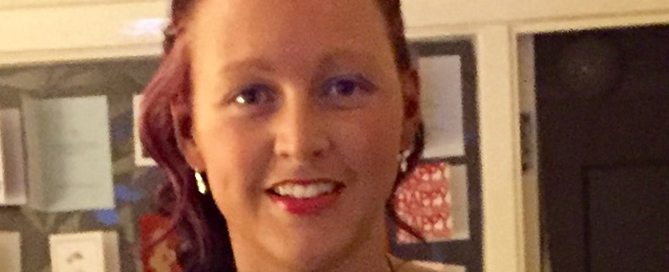Gillian, (31) lives in Glasgow, Scotland. She was diagnosed with temporal lobe epilepsy aged 14 months. Gillian used to have tonic clonic seizures however these changed over time and her seizures no longer involve a full loss of consciousness. Instead, her awareness is altered; she remains conscious but is unaware of her behaviour. This means that she cannot identify sources of danger during a seizure; this puts her at risk and can be tricky for others to manage.
For a long time, Gillian was unaware of when a seizure was about to occur but she now gets a warning and is usually able to alert others. As a young child Gillian found it easier to accept her epilepsy. However, as she grew up her seizures worsened and she struggled to find a medication that would control her seizures effectively and as a result she sometimes felt quite down about her epilepsy. She felt that she was watching from the sidelines as her school friends took part in all sorts of activities which she was not able or not allowed to join in.
Despite the ups and downs, Gillian stays positive and determined to achieve her goals. After leaving school she qualified as a sports coach and leads children’s trampoline and classes and sports camps during the school holidays as well as helping at exercise classes for adults and older people. Her ambition is to work with children in schools settings and she has recently returned to part-time study to gain the qualifications she needs. On top of work and study, Gillian finds time to volunteer to support children with epilepsy and draws on her experience to advise and inform Epilepsy Connections.
To unwind, she enjoys dance classes as well as getting dressed up and hitting the town with her friends. Gillian has a supportive family and great friends and never loses her zest for life. Despite treatment she still has seizures but aims to enjoy her life to the full. Despite the challenges of living with refractory epilepsy, Gillian remains upbeat, strong, generous, ambitious and courageous – a perfect candidate to exemplify this this year’s International Epilepsy Day

